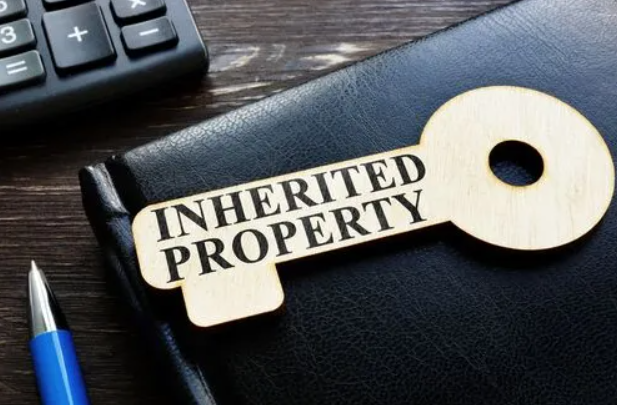Inheriting a house can be both a blessing and a challenge. While it often comes with sentimental value, it also brings financial and legal responsibilities. If you’ve inherited a property and are considering selling it, this guide will walk you through the key steps to make the process as smooth as possible.

Step 1: Assess the Property’s Condition
Before listing the house for sale, take the time to assess its condition. Hire a professional inspector if necessary to identify any structural issues or repairs that need to be made. Understanding the state of the property will help determine its market value and whether it’s worth making improvements before selling.
Step 2: Understand the Financial and Legal Implications
Selling an inherited home comes with unique financial and legal considerations, including:
- Mortgage and Debt: Check if there are any outstanding loans or liens on the property.
- Property Taxes: Determine whether estate or capital gains taxes apply to your sale.
- Probate Process: If the property was not in a trust, you may need to go through probate court to obtain legal ownership before selling.
Consulting with a real estate attorney or financial advisor can help clarify any legal or tax-related questions.
Step 3: Decide How to Sell the Property
There are multiple ways to sell an inherited home:
- List with a Real Estate Agent: This is ideal for getting the best market value with professional guidance.
- Sell to a Cash Buyer: If you want a fast sale with minimal hassle, selling to a real estate investor may be an option.
- For Sale by Owner (FSBO): If you have experience in real estate, selling the property yourself could save on commission fees.
Each method has pros and cons, so choose based on your timeline, financial goals, and comfort level.
Step 4: Prepare the House for Sale
Making the house as appealing as possible can maximize its value. This might include:
- Decluttering and Cleaning: Remove personal belongings and deep-clean the home.
- Repairs and Updates: Address necessary repairs and consider minor updates like painting or landscaping.
- Staging the Home: Professionally staging or rearranging furniture can help attract buyers.

Step 5: Set a Competitive Price
Pricing an inherited home correctly is crucial. Work with a real estate agent or appraiser to determine a competitive listing price based on market conditions, the home’s condition, and comparable properties in the area.
Step 6: Market the Property
A strong marketing strategy can help sell the house quickly. This includes:
- High-quality photos and virtual tours
- Listing on popular real estate platforms
- Open houses and private showings
- Social media and online advertising
Step 7: Negotiate and Close the Sale
Once you receive offers, review them carefully. Consider factors like the buyer’s financing, contingencies, and closing timeline. After accepting an offer, work with a title company or attorney to finalize the paperwork and close the deal.
Selling an inherited house can be an emotional and complex process, but with careful planning and the right professional support, it can be a smooth and successful experience. Whether you choose to sell quickly for cash or maximize value through traditional listing methods, taking the right steps will ensure you get the best outcome for your inherited property.
Related Posts
What are Carrying Costs? Sell Your Texas House Fast and Avoid Carrying Costs
What are Carrying Costs? Sell Your Texas House Fast and Avoid Carrying Costs If you’re trying to sell your house
What to Do If You Owe Back Property Taxes
What to Do If You Owe Back Property Taxes Owing back property taxes can be stressful, but taking action quickly
Address: 40 E. Montgomery Ave. Ardmore, PA 19003
Phone: 610 439 9332
Copyright © 2024 Residence Investors.
